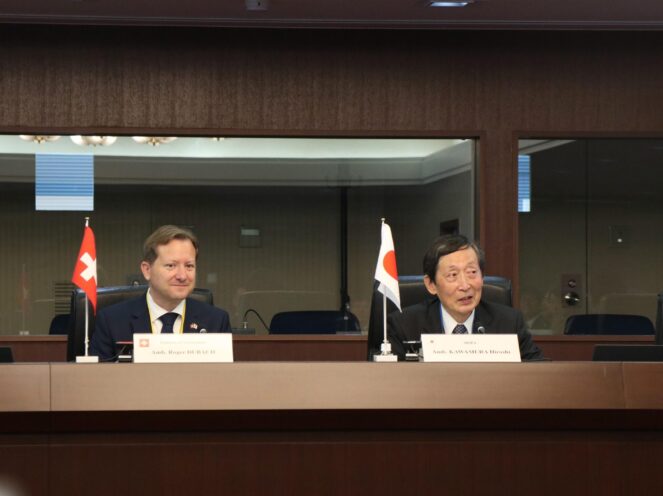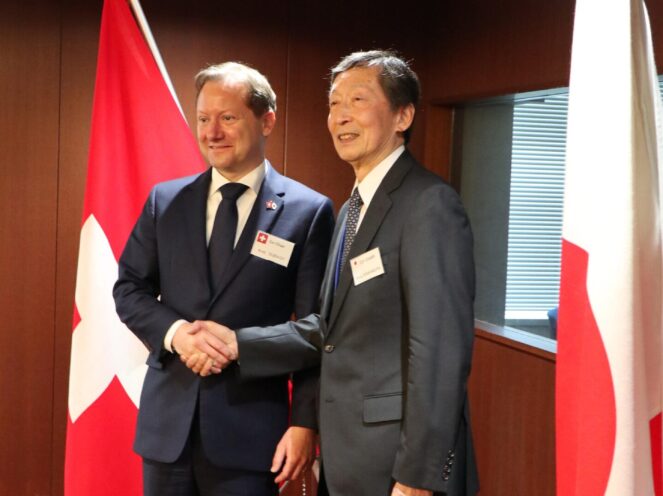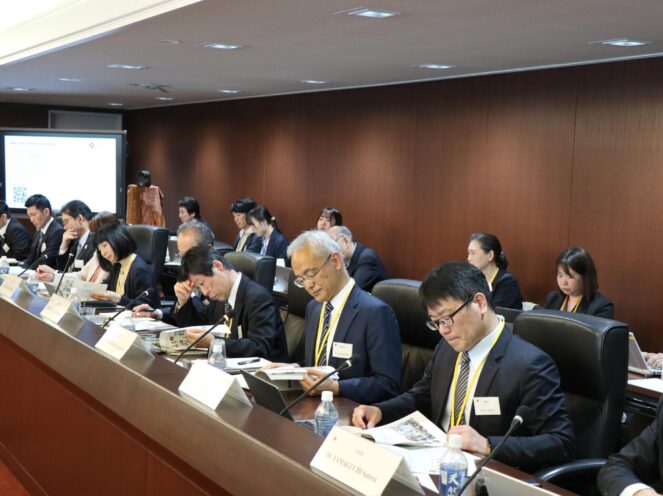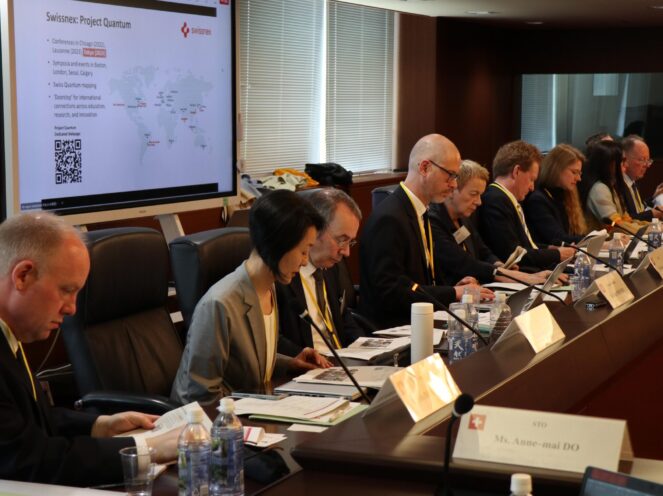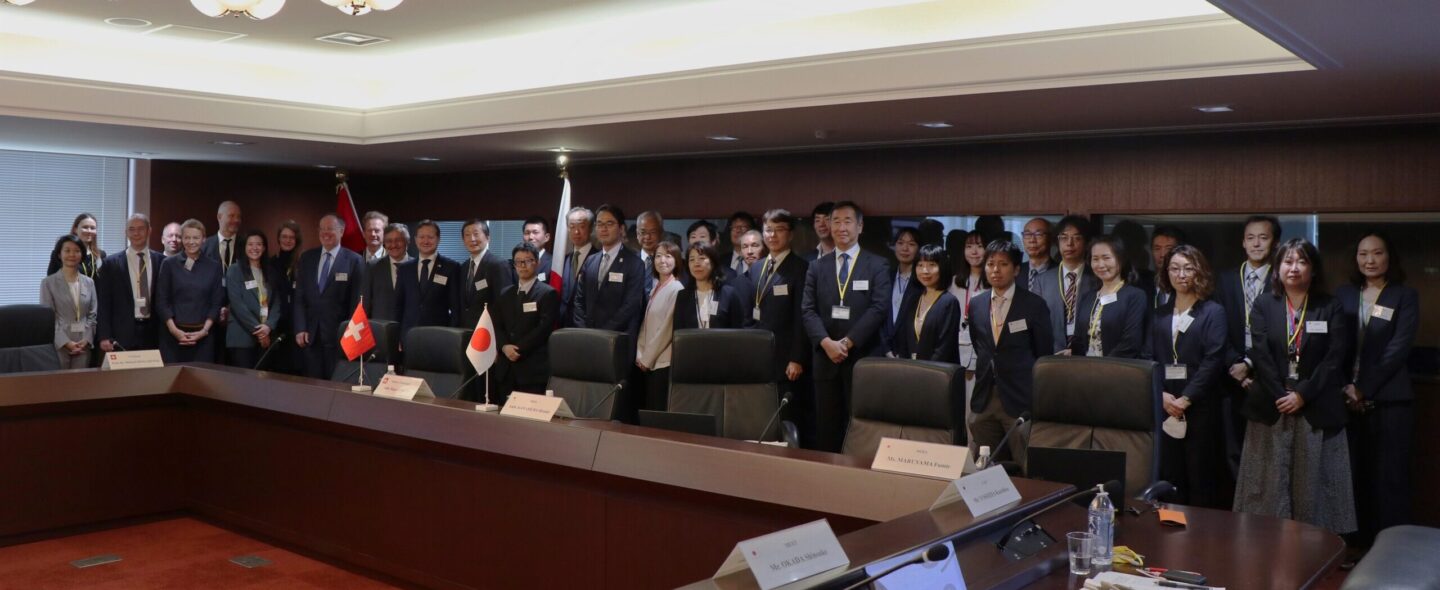
Co-chaired by H.E. Mr. Hiroshi Kawamura , Ambassador for Science and Technology Cooperation, Ministry of Foreign Affairs of Japan (MOFA), and H.E. Mr. Roger Dubach, Ambassador of Switzerland to Japan, the meeting enabled both parties to give updates on policies and collaborative frameworks, and facilitated fruitful discussions on fostering innovation and strengthening scientific collaboration.
The session began with opening remarks from the co-chairs, followed by presentations with updates on the latest Science, Technology, and Innovation (STI) policies. Japan’s representatives from the Cabinet Office (CAO), the Ministry of Education, Culture, Sports, Science and Technology (MEXT), and the Ministry of Economy, Trade and Industry (METI) outlined their respective policies, including an emphasis on the Japan AI Act. Switzerland’s latest strategies were introduced by officials from the State Secretariat for Education, Research and Innovation (SERI), the ETH Board and Innosuisse. Reports on the activities of Swissnex in Japan and the Science and Technology Office Tokyo showcased their contributions to facilitating bilateral research and innovation partnerships.
The meeting also reviewed cooperative frameworks, such as programs from organizations like the Japan Society for the Promotion of Science (JSPS), Japan Science and Technology Agency (JST), and Japan Agency for Medical Research and Development (AMED). Swiss contributions to these frameworks included collaborations led by the Swiss National Science Foundation (SNSF) and the University of Zurich (UZH) newly appointed as the Leading House Asia Pacific (LHAP) reflecting the shared commitment to advancing joint research endeavors.
Discussions extended to thematic collaborations in areas such as quantum science, particle and nuclear physics, polar research, snow and ice studies, metrology, and neutrino astrophysics. Partnerships between universities were also celebrated, with the University of Bern and the University of Zurich highlighting their ongoing activities with Japanese institutions. Nobel Laureate Takaaki Kajita presented on behalf of the University of Tokyo.
Closing remarks by the co-chairs reaffirmed the importance of these Joint Committee Meetings in promoting innovation and deepening scientific and technological cooperation. These discussions serve as a vital platform for enhancing bilateral ties and achieving mutually beneficial advancements. As one of Switzerland’s leading research partners in Asia, Japan plays a key role in nurturing international joint research. This partnership remains particularly significant as both nations prioritize stability and shared values in education, research, and innovation.
